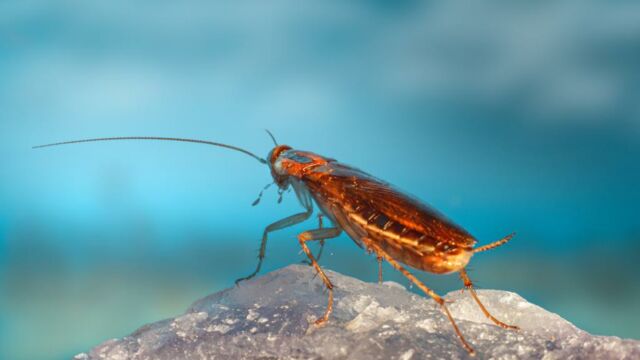Cockroaches have genetically mutated to survive humans: This trap no longer works on the insect

Cockroaches have evolved to avoid traps set up by human beings to squash them, however it has also changed the way they reproduce!
Humans have concocted ingenious ways of getting rid of cockroaches, the tiny (but sometimes unusually large) insects that crawl through the crevices of our living spaces. Some use white vinegar, others prefer essential oils. Sugar-based traps are also very effective...
Discover our latest podcast
It seems like cockroaches have caught on to our ways and also evolved exceptionally in order to avoid them. But on the flip side, their evolution is having a serious impact on how they reproduce.
More under this adMore under this adCockroaches cannot be fooled by sugar

It's a human-driven, high-speed evolution that cockroaches have undergone. Our war against cockroaches has been going on for generations and we have found ways to get rid of these pests. But in turn, these insects have adapted to them... via genetic mutation!
To avoid being fooled, cockroaches have developed an aversion to sugar, which turns them away from our traps. The problem (for them) is that sugar is an essential component of their sexuality.
In an article published in the scientific journal Proceedings of the Royal Society B, researchers who studied cockroaches in captivity explain:
During courtship, the male offers the female a nuptial gift containing maltose, which accelerates copulation.More under this adMore under this ad
In other words, the male gives the female a gift and begins copulating with her as she feasts.
But, now repulsed by these gifts, the females turn away and the males have some difficulty initiating their intimate relations.
Read more:
⋙ The food you eat could be the reason you attract mosquitoes and why their bites itch
⋙ Mosquito bite: Do not wear these 3 colours if you want to be spared this summer
Genetic adaptation
Cockroaches have not only developed an aversion to sugar to increase their chances of survival. According to the scientific article, male cockroaches living in human-infested environments have had to change the way they have sex because of this aversion. They state that they have to:
More under this adMore under this adproduce more maltotriose, which is more resistant to salivary glucosidases, and they initiate copulation more quickly than wild-type males, before the [sugar-averse] females interrupt their nuptial feeding and disassemble the male.
Surviving or reproducing, you have to choose, and it is interesting to note that cockroaches have had to adapt very quickly to ensure their descendants.
More under this adMore under this adThis article has been translated from Gentside FR.
Read more: This man's insect bite wouldn't go away, it turned out to be a sign of a devastating condition
Sources used:
Proceedings of the Royal Society B:Gustatory polymorphism mediates a new adaptive courtship strategy